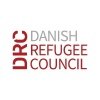Rehabilitation of the Ottoman Courts’ Garden in Ramallah
BACKGROUND
“Public spaces are a key element of individual and social well-being, the places of a community’s collective life, expressions of the diversity of their common, natural and cultural richness, and a foundation of their identity”. Charter of Public Space, Rome, 2013
The United Nations Human Settlements Program, UN-Habitat, is mandated by the UN General Assembly to promote socially and environmentally sustainable towns and cities with the goal of providing adequate shelter for all. UN-Habitat has the mandate to work with public space, to promote local governments “to use public space for inclusion, economic improvement, culture, and environmental resilience in cities”, to “facilitate and implement exchange, cooperation and research between partners working in this field”, “to develop a policy approach on the role that public spaces play in meeting the challenges of our rapidly urbanizing world, to disseminate that policy and its results widely and to develop a plan for ensuring its application internationally”. Governing Council Resolution 23/4, April 2011. A key milestone was the adoption of the SDG 11.7 which states: that by 2030, provide universal access to safe, inclusive, and accessible, green and public spaces, particularly for women and children, older persons and persons with disabilities. The indicator for the target is requesting local and national governments to collect the meta- data for the “Average share of the built-up area of cities that is open space for public use for all, by sex, age and persons with disabilities”.
Over the past few years there has been growing attention to creating safe, inclusive, and accessible public spaces, especially for women and girls. The adoption of SDG 11.7 and the elaboration of the New Urban Agenda provide significant recognition of the importance of public space to sustainable development and whilst it is a critical first step, on its own it will have little impact without an appropriate follow up mechanism. Therefore, there is a need for supporting local and national governments in developing legislation, policy, norms and practices, which support governments in adopting a holistic and integrated approach to the planning, design development, creation, protection and management of public spaces which are safe, inclusive and accessible for women and girls. Despite the importance of public space, especially for women and girls, it has seldom been given the attention it deserves and, more importantly, in policy and action especially at the local level.
The "HAYA" Programme "Eliminating Violence Against Women in the West Bank and Gaza Strip" is a five-year joint programme funded by the Government of Canada with an overall programme objective of building just and secure communities for women and girls in the West Bank and Gaza Strip. This will be achieved through progress against three main outcomes focusing on:
Decreased harmful practices and attitudes that perpetuate and validate violence against women and girls within targeted households and communities;
(2) Increased access by women and girls of gender- responsive EVAW services (economic, medical, psychosocial, security, shelter) free of discrimination;
(3) Strengthened institutional capacity to develop and implement legal and policy frameworks that promote and protect women's and girls' rights with regards to VAW.
Under outcome (1), UN-Habitat in cooperation with the MoLG and Ramallah Municipality are looking forward to hiring a registered contractor to perform the tasks required under the assignment: “Rehabilitation of the Ottoman Court’s Garden in Ramallah”. The contractor is required to implement the designs as specified in the architectural, structural and electrical drawings, and as per the specifications of the BoQ.
OBJECTIVES
This assignment aims to rehabilitate the Ottoman Court’s Garden in the Old City of Ramallah as an environmentally friendly community urban farm, where all groups of the community especially women and girls can learn about and practice seasonal urban farming activities and enjoy the produce of their own planting in a safe and inclusive space. The rehabilitation of the garden will include the provision of planting beds, green walls and a greenhouse while protecting existing trees, as well as the provision of social spaces designed for gatherings, studying, or leisure, with a designated zone for kids
SCOPE OF WORKS / ACTIVITIES
UN-Habitat Palestine Office seeks to implement the rehabilitation works required for transforming the Ottoman Court’s Garden into an environmentally friendly community urban farm. Accordingly, the scope of work includes the implementation of all the civil works, excavation, back filling and site preparation works, wood and metal works, concrete works, electrical and mechanical works and finishing works as stated in the drawings and BoQs.
DURATION OF WORK
All required works under this contract shall be completed within sixty (60) calendar days starting from the date of site possession by the contractor, mobilization and demobilization included.
RESPONSIBILITIES OF THE CONTRACTOR
RESPONSIBILITIES OF UN-HABITAT
KEY PERFORMANCE INDICATORS
Performance of the contractor shall be checked against the approved work plan, compliance with the specifications, safety standards, quality control measures such as material testing and use of approved material and equipment.
WARRANTY/DEFECTS LIABILITY PERIOD
All works shall be warranted for 12 months; this liability will cover all material and workmanship defects arising during the warranty period.
PAYMENT SCHEDULE
Payment schedule
PROJECT LOCATION
Palestine, West Bank, Ramallah, Ottoman Court.
MANAGEMENT MODALITY
UN-Habitat will practice full monitoring over this project to ensure the satisfactory implementation of this project.
Th contractor shall submit biweekly progress reports, which specify the implemented works as per the project documents.
UN-Habitat shall review the submitted progress reports and acceptance of implemented works and release the due payments to the contractor accordingly.
UN-Habitat shall monitor the progress of works and issue instructions and corrective actions to the contractor in case there is a delay in the progress.
Optional Site visit
Date & time: 16th Sep 2024 at 10:00AM (Ramallah Local Time)
Location: Othman Court Park, Ramallah, Palestine
Contact Person: Ms. Wafa Butmeh , Email: [email protected]
GPS Coordinates: 31.904114491595138, 35.19797523958574
Optional Virtual Pre-bid Conference
Date & time: 17th Sep 2024 at 11:00AM (Ramallah Local Time), I will shar the link at time
RFQ Closing: 23rd Sep 2024 at 04:00PM (Ramallah Local Time)
Please refer to below link for more details:
https://www.ungm.org/Public/Notice/246512






















